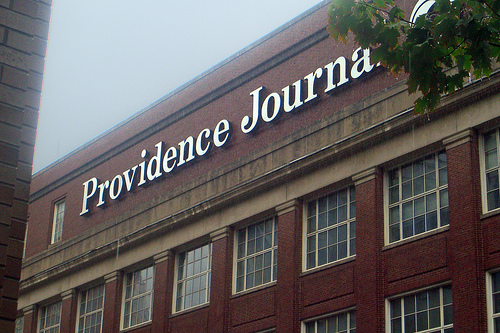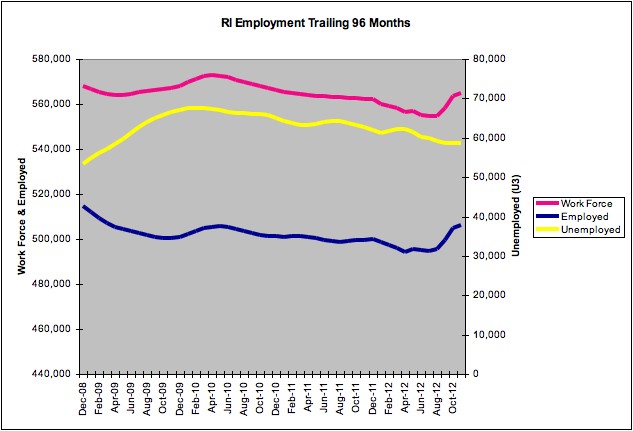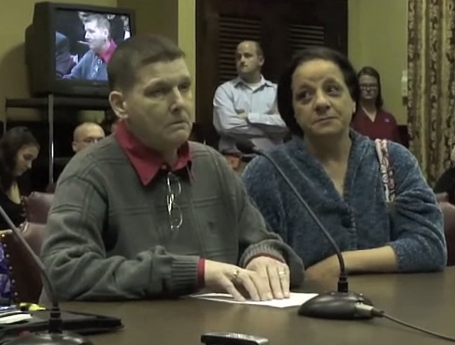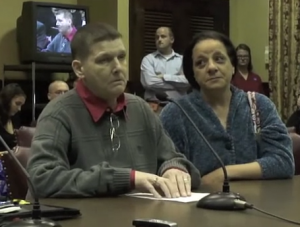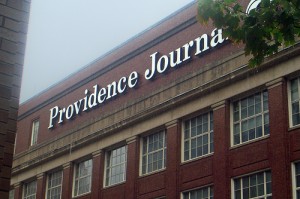 The Providence Journal is entitled to its opinions. But as the state’s paper of record, it should also respect the opinions of others.
The Providence Journal is entitled to its opinions. But as the state’s paper of record, it should also respect the opinions of others.
Instead, the ProJo editorial page has a habit of tacitly belittling those it disagrees with – one of the most insidious forms of mainstream media bias – evidenced today by a demeaning editor’s note on a letter from a reader.
In the LTE, Dan D’Alessio, of North Providence, explains how he lost his unemployment benefits because of the brinksmanship during the fiscal cliff negotiations. Clearly frustrated, he writes, “I’m sure our Founding Fathers would disapprove of just how ineffective big government has become. Please let me know in a timely fashion as possible what I am supposed to do now, since I am at my wit’s end.”
At the end of his letter, the Journal offers him a response: “Editor’s note: There was no unemployment compensation at the time of the Founders.”
First off, the Journal is wrong about this. According to the Social Security Administration’s history on social services in America, “The first colonial poor laws were fashioned after those of the Poor Law of 1601. They featured local taxation to support the destitute.” It may have been administered much differently, and it may have come in a different form than a direct deposit (oftentimes, out of work colonists would get put to work on “poor farms”), but to say it didn’t exist isn’t accurate.
Secondly, it entirely misses the point. The writer, in case it needs clarifying, was arguing that politics now gets in the way of government, and the founding fathers wouldn’t like that. You can disagree with the sentiment, but whether or not a certain program existed then is really irrelevant.
Thirdly, and I think most importantly, it came across as a nasty pot shot – and was likely meant that way. Yet another indication of just how dismissive the Journal is to the plight of the less fortunate.
Does anyone think a similar editor’s note would have been attached to a letter questioning what the founding fathers would think of pension reform politics?
Here is D’Alessio’s letter, and the ProJo’s response:
My DLT experience
My unemployment compensation ran out in the last week of December.
Since that time Congress has passed a one-year extension and President Obama signed the bill. The late signing is 50 percent of the reason I was not able to continue to collect my unemployment benefits. The other 50 percent is because I am unable to get through on the phone to a representative of the Rhode Island Department of Labor and Training.
I did leave an online message about my plight, and I’m sure that many other Rhode Islanders have as well. So far, I have not received any mail or phone call from any of the department’s representatives.
I’m sure our Founding Fathers would disapprove of just how ineffective big government has become. Please let me know in a timely fashion as possible what I am supposed to do now, since I am at my wit’s end.
Finally, when I first started collecting unemployment I was able to fill out all of the necessary forms online except to pick a personal identification number. I tried then to speak to representatives by telephone but my attempts were all in vain. So I decided to drive to DLT headquarters to speak with someone just to get a PIN (I think it would have been prudent to use the last four digits of a person’s Social Security number) but I was told that I could not speak to anyone.
All I wanted to do was speak to someone in authority to explain a problem the DLT created for itself but I had an antidote for. Perhaps the agency could use an out-of-work thinker and problem solver like me.
Dan D’Alessio North Providence
Editor’s note: There was no unemployment compensation at the time of the Founders.

